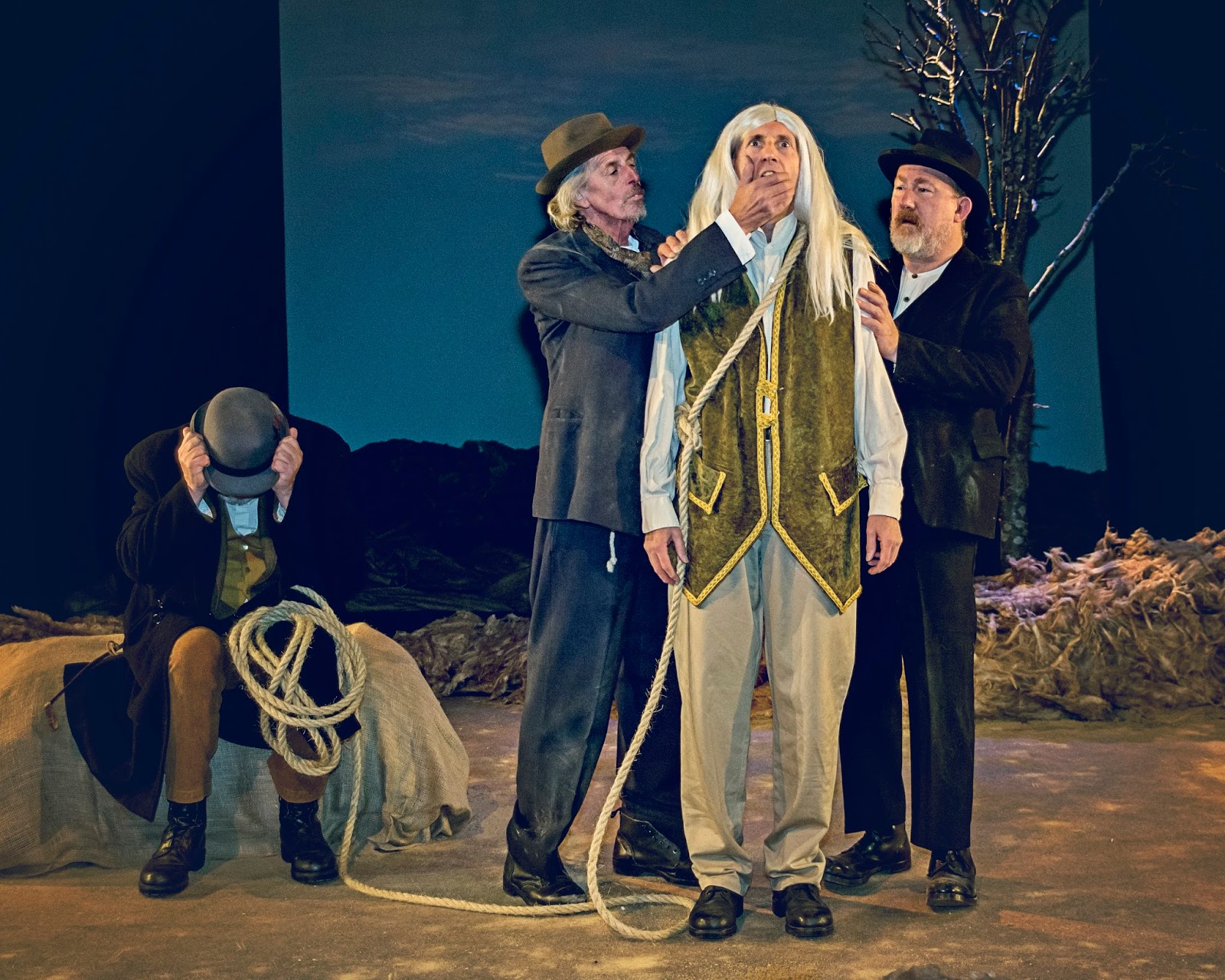
The growing feel of repetition in the story is a part of a general loss of meaning happening during the play also pauses between talks becomes longer and longer Beckett said that "silence is pouring into this play like water into a sinking ship". They give birth astride of a grave, the light gleams an instant, then it's night once more. Have you not done tormenting me with your accursed time! It's abominable! When! When! One day, is that not enough for you, one day he went dumb, one day I went blind, one day we'll go deaf, one day we were born, one day we shall die, the same day, the same second, is that not enough for you? When Pozzo is asked what happened to them, he answers, furious: For the rest, the dialogues are almost the same: indeed, nobody seems to remember anything of the day (or the days?) before only Vladimir has a sort of déjà-vu. Reading the work, this fact slowly becomes evident: the first act concludes with a boy sent by Godot saying that "he won't come this evening but surely tomorrow", but Vladimir feels a sort of déjà-vu:įor the reader, this déjà-vu is fully confirmed by the second act, which is a repetition, for the most part, of the first the only change is the condition of Lucky & Pozzo: Lucky is now dumb, Pozzo now is blind, falls and calls for help. Eternal ReturnĪnother Nietzsche's typical idea present in the play is the "Eternal Return": time is viewed as being not linear but cyclical. The similarity with Nietzsche's dying God is evident. We can avoid a specific meaning for Godot, and think simply to the greatest common factor in these different interpretations: a certain, complete solution to life, that could give a moral guide and drive our actions. Personally, I wouldn't even know him if I saw him. So who is Godot? Reminding that also Estragon states that If by Godot I had meant God I would have said God, and not Godot. Beckett was often asked about this and one of his most repeated answers was: Supporting this, it is said in the play that Godot has a "white beard", a typical God's feature. Other critics saw in Didi & Gogo (how Vladimir and Estragon calls each other) the Freudian Id and Ego, while Godot is the superego that should gives moral values, without which every action is impossible.īut the most common explanation is that the word "Godot" can easily be read as a joke on the word "God" and the suffix "-ot" is often used to give a caricatural connotation ("Charlot", "Pierrot"). Somebody had seen in him the Marxist revolution then, Pozzo and his slave Lucky are the capitalist and the exploited proletariat, while Vladimir & Estragon are the left parties who will never do anything to help it, apart from wait. The role of Godot, the absent main character, has been the subject of much debate it is clear that on it depends the whole interpretation of this "tragicomedy" - as Beckett defined his work.

" Waiting for Godot" is a play by Samuel Beckett, divided in two acts it focuses on two tramps, Vladimir & Estragon, who are waiting for a character called Godot, who will never arrive.


 0 kommentar(er)
0 kommentar(er)
